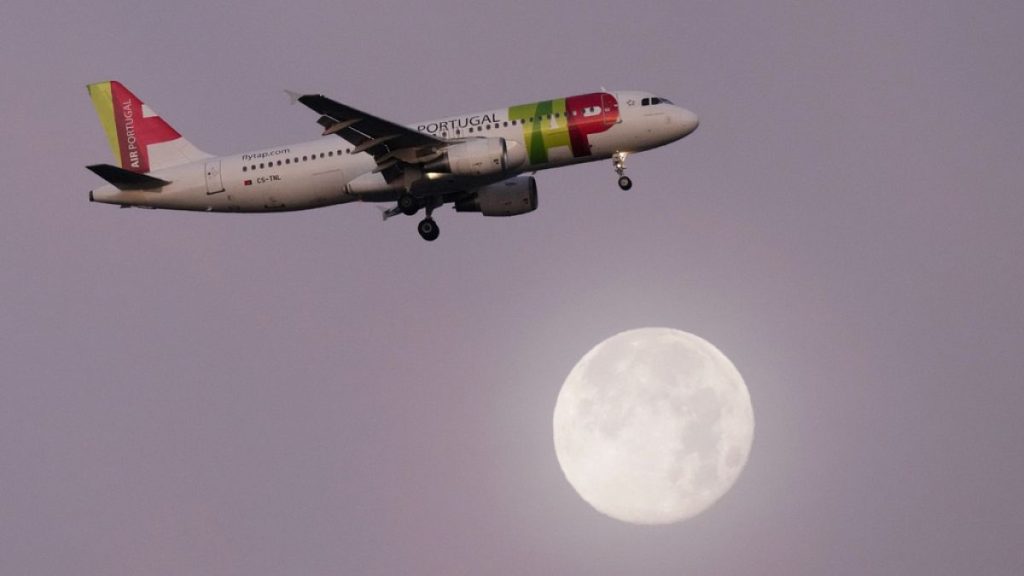Paragraph 1: The Privatization of TAP Portugal and the Leading Contender
TAP Portugal, the state-owned flag carrier of Portugal, is on the brink of privatization, with a significant stake, potentially exceeding 51%, slated for sale in 2024. This move has attracted considerable interest from several major European aviation groups, including Lufthansa and Air France-KLM. However, industry analysts and bankers widely consider International Airlines Group (IAG), the parent company of British Airways, Iberia, Aer Lingus, and Vueling, as the frontrunner in the race to acquire a controlling interest in TAP. This assessment stems from IAG’s proven track record in successfully managing Iberia, another prominent Southern European airline. The potential synergy between Iberia and TAP, creating a formidable hub in the region, is a compelling factor in favor of IAG.
Paragraph 2: Strategic Value of TAP and the Potential Sale Terms
TAP Portugal holds a strategic position in the European aviation landscape, particularly due to its extensive network of flights to Brazil, making it the largest European carrier serving this key market. In addition, TAP boasts a strong presence in Africa and North America, further enhancing its attractiveness to potential investors. While the precise terms of the sale, including the exact percentage of shares to be offered and the final valuation, remain undisclosed, the Portuguese government has indicated that a transaction is expected to be finalized within the current year. Early estimates, based on reports from Italian media, suggest a potential valuation in the range of €180-€200 million for a 19.9% stake, although this is subject to change depending on the final structure of the deal.
Paragraph 3: The Drive for Consolidation in the European Aviation Industry
The pursuit of TAP by major European airline groups reflects a broader trend of consolidation within the industry. Faced with increasing competition from global players and the need to enhance cost efficiency, European carriers are actively seeking mergers and acquisitions to strengthen their market positions. This consolidation drive is evident in the disparity between the European and US aviation landscapes. While a significant portion of European air capacity is distributed among 36 airlines, a mere six airlines dominate the US market, highlighting the greater fragmentation and competitive pressures in Europe.
Paragraph 4: Challenges and Obstacles to the TAP Sale
The privatization of TAP is not without its challenges and potential hurdles. One key concern revolves around the preservation of the airline’s Portuguese identity under foreign ownership. Maintaining the national character and brand image of TAP will likely be a significant consideration for the Portuguese government and public alike. Furthermore, antitrust regulations pose another important obstacle. A sale involving a stake greater than 20% would necessitate a thorough review by the European Commission’s competition regulator in Brussels. This scrutiny could potentially delay or even derail the acquisition, as demonstrated by IAG’s previous unsuccessful attempt to acquire Air Europa, a deal that was ultimately abandoned due to stringent regulatory demands.
Paragraph 5: IAG’s Stance and Commitment to TAP’s Portuguese Identity
IAG has publicly expressed its strong interest in acquiring a stake in TAP, emphasizing its commitment to preserving the airline’s Portuguese identity. While acknowledging the need to carefully evaluate the privatization terms and the Portuguese government’s intentions, IAG has indicated its openness to considering both majority and minority stakes. The company views TAP as an attractive investment opportunity, highlighting the potential for growth and synergy within the IAG group. IAG’s stated intention is to further develop TAP while respecting its Portuguese heritage, leveraging the group’s scale and global reach to enhance the airline’s capabilities.
Paragraph 6: The Future of TAP and the Consolidation Landscape
The ongoing privatization process of TAP Portugal represents a significant development in the European aviation industry. The outcome of the sale will have far-reaching implications for the competitive landscape and the future of TAP itself. While IAG appears to be the leading contender, the final decision rests with the Portuguese government, which must carefully weigh the various bids and consider the long-term implications for the national airline. The success of the privatization will depend on navigating the complex regulatory landscape and addressing concerns surrounding national identity while simultaneously achieving the strategic objectives of enhancing TAP’s competitiveness and long-term viability. The successful acquisition of a stake in ITA Airways by Lufthansa demonstrates that such consolidations are possible, albeit with careful negotiation and concessions. The future of TAP remains uncertain, but its eventual privatization will undoubtedly reshape the contours of European aviation.














